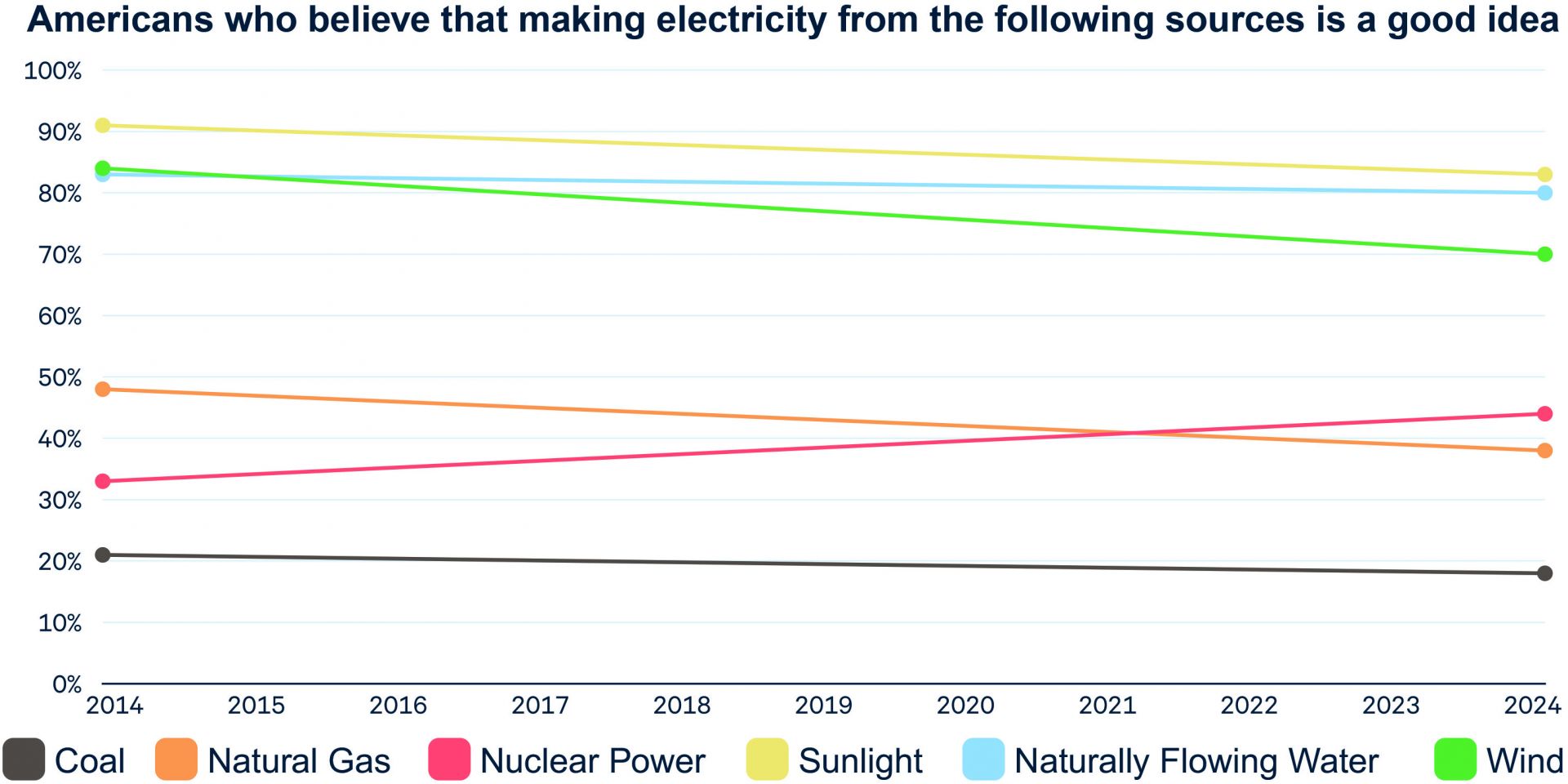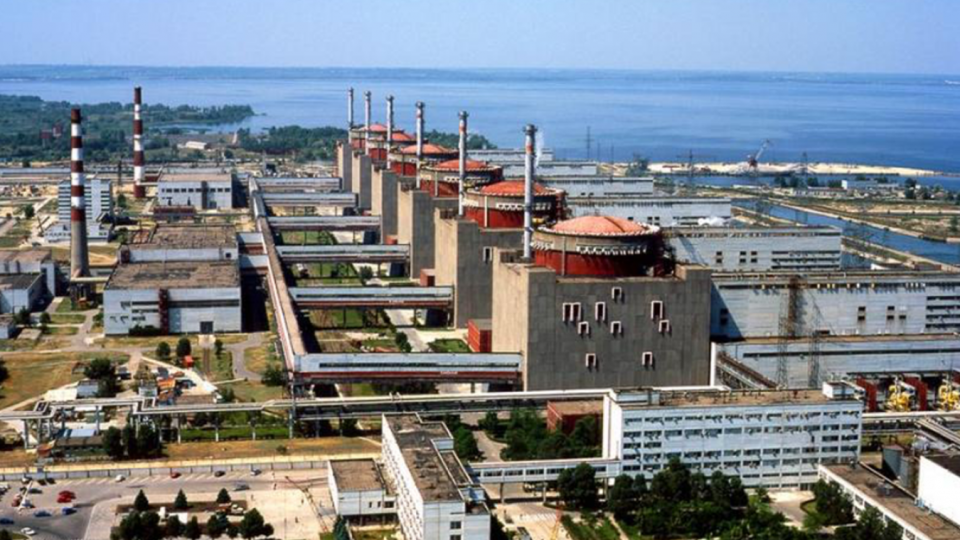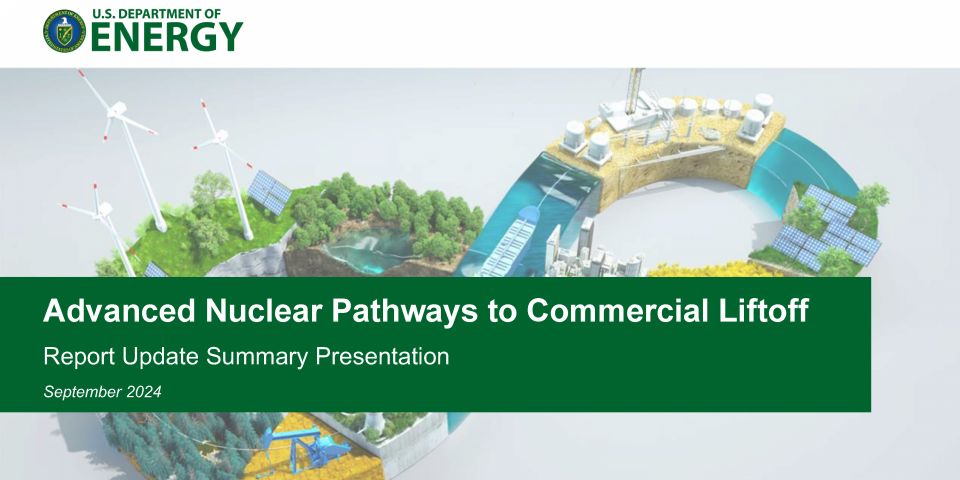Nuclear power boost: Only a small handful of questions showed statistically significant change, according to RFF report authors Bo MacInnis and Jon A. Krosnick. That includes questions on different energy sources for electricity generation. Respondents were asked if using “sunlight,” hydropower, wind, coal, natural gas, and nuclear power were “good” or “bad” ways to generate electricity, or neither good nor bad. The same questions were asked in 2013.
Only one electricity source saw any increased support, and that was nuclear power, with a statistically significant jump from 33 percent in 2013 to 44 percent in 2024. Other energy sources saw a statistically significant decrease in support: “sunlight,” wind, and natural gas. Both hydropower and coal saw slight, statistically insignificant drops in support.
Natural gas and nuclear power effectively switched places in the survey respondents’ esteem over the past ten-plus years, as the accompanying graph shows. While renewable electricity generation continues to enjoy the support of a significant majority of the survey respondents, fossil fuels—represented by natural gas and coal—now have the lowest level of approval from survey respondents.
First report of 2024: For over two decades, researchers at Stanford and RFF have been tracking American public opinion on climate change. According to the report, “the most striking result of this continued polling has been the overall consistency of the results,” despite headline-generating storms, wildfires, and cold snaps.
One statistically significant change is “in the direction of less endorsement of climate change’s existence and less trust in scientists who study the environment,” according to the report. Seventy-five percent of survey respondents agreed that “the earth has probably been warming over the past 100 years,” down from 83 percent in 2020 for a statistically significant decline from four years before. The latest number—75 percent—fits well within the range of past survey results—the lowest percentage of respondents agreeing with that statement was 69 percent (in 2015), while the highest was 85 percent (in 2006 and 2007).
The new report on public opinions of climate change is the first of several expected to come out of the 2024 survey. Future reports in the series will explore American public opinion on climate policies and politics, environmental justice, and areas of partisan agreement and disagreement.
Voting the issues: The survey found that 73 percent of Americans say they know at least a moderate amount about climate change. For a smaller percentage—the “issue public”—climate change is a matter “of great personal importance.”
“These are the people who pay careful attention to news on the subject, think and talk a lot about it, and give money to lobbying groups to influence policy,” the report states. “In 2024, the global warming issue public makes up a near all-time high of 21 percent of Americans, up from 9 percent in 1997 and down a bit (though not statistically significantly) from 26 percent in 2020, showing that a growing body of people care deeply about climate change and may be likely to cast their votes based on candidates’ climate policy platforms.”










